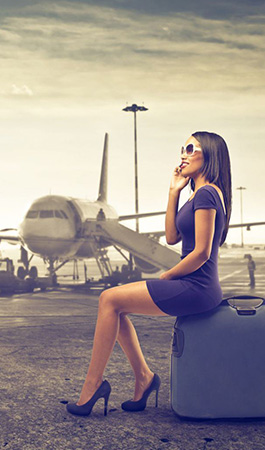Embarking on a solo adventure opens up a world of possibilities, and one of the most crucial decisions you’ll face is where to rest your head each night. The choice between a hotel and a hostel can significantly impact your travel experience, budget, and social interactions. As the landscape of accommodations evolves, solo travellers are presented with an array of options that cater to diverse preferences and needs. Understanding the nuances of each can help you make an informed decision that aligns with your travel goals and personal comfort levels.
Comparative analysis of hotel and hostel accommodations
When weighing the merits of hotels versus hostels, it’s essential to consider various factors that contribute to the overall travel experience. Hotels typically offer privacy, comfort, and a range of amenities, while hostels are known for their social atmosphere and budget-friendly rates. The decision often boils down to personal priorities and the specific requirements of your journey.
Hotels provide a sanctuary of privacy, with individual rooms that offer a retreat after a long day of exploration. This solitude can be particularly appealing for introverted travellers or those who require a quiet space to work or recharge. On the other hand, hostels foster a communal environment that can be a goldmine for social butterflies looking to forge connections with fellow globetrotters.
Amenities are another point of differentiation. Hotels generally boast a wider array of services, from room service to on-site restaurants and fitness centres. Hostels, while more basic, often provide shared kitchens and common areas that encourage interaction and can help you save on meal costs. The trade-off between convenience and cost-effectiveness is a critical consideration for solo travellers.
Cost-benefit evaluation for solo travellers
For many solo adventurers, budget considerations play a pivotal role in shaping their travel plans. Hostels have long been the go-to option for those looking to stretch their travel funds, offering shared dormitories at a fraction of the cost of a hotel room. However, the rise of budget hotels and the increasing sophistication of some hostels have blurred the lines between these two accommodation types.
Budget allocation strategies for extended trips
When planning an extended solo journey, allocating your budget wisely can make the difference between a truncated trip and a prolonged adventure. Hostels can be an excellent choice for longer stays, allowing you to conserve funds for experiences and activities. Many seasoned travellers adopt a mixed approach, alternating between hostels and hotels to balance comfort with cost-saving.
Consider creating a travel budget spreadsheet that factors in accommodation costs alongside other expenses. This can help you visualize how your choice of lodging impacts your overall trip duration and quality. Remember to account for hidden costs such as meals and transportation when comparing options.
Price-to-amenity ratio in urban vs. rural settings
The value proposition of hotels versus hostels can vary significantly depending on your destination. In urban centres, where real estate comes at a premium, hostels often provide a cost-effective way to stay in central locations. Conversely, in rural areas or smaller towns, the price gap between hotels and hostels may narrow, making hotels a more attractive option for solo travellers seeking additional comfort.
It’s worth noting that some hostels in popular tourist destinations have evolved into boutique accommodations , offering private rooms and upscale amenities at competitive rates. These “poshtels” can provide an excellent middle ground for solo travellers who desire social interaction without sacrificing comfort.
Hidden costs: fees, taxes, and incidentals
When comparing prices, be aware of the hidden costs that can impact your budget. Hotels may charge additional fees for Wi-Fi, parking, or resort amenities. Hostels, while generally more transparent with pricing, might have charges for bedding, towels, or lockers. Always read the fine print and factor these potential extras into your cost calculations.
Some destinations impose tourist taxes or city fees that can add up, especially for longer stays. These charges are typically applied per person per night, which can disproportionately affect solo travellers staying in hotels where the cost isn’t shared.
Loyalty programs and rewards for frequent solo travellers
For those who travel solo frequently, loyalty programs can offer significant value. Many hotel chains provide rewards schemes that can lead to free nights, room upgrades, or additional perks. While less common, some hostel networks also offer loyalty benefits, which can be particularly advantageous for long-term travellers.
Consider signing up for a travel rewards credit card that earns points on accommodation bookings. This strategy can help offset costs and potentially upgrade your travel experience over time. However, be mindful of annual fees and ensure the benefits align with your travel patterns.
Social dynamics and networking opportunities
One of the most significant distinctions between hotels and hostels lies in their social atmosphere. For many solo travellers, the opportunity to meet like-minded individuals is a crucial factor in their accommodation choice. Hostels excel in this area, providing a built-in community that can enrich your travel experience.
Common areas and organised activities in hostels
Hostels are designed with socialisation in mind. Common areas such as lounges, kitchens, and rooftop terraces serve as hubs for interaction. Many hostels go a step further by organising group activities, from city tours to cooking classes, which provide structured opportunities to connect with other guests.
These organised events can be particularly valuable for solo travellers who may feel intimidated by the prospect of approaching strangers. They offer a natural context for conversation and shared experiences, often leading to lasting friendships or travel companions.
Solo-friendly hotel bars and lounges
While hotels are generally less conducive to spontaneous socialising, many establishments recognise the needs of solo travellers and have adapted accordingly. Hotel bars and lounges can serve as comfortable spaces for solitary guests to enjoy a drink or meal while remaining open to conversation.
Some hotels have introduced communal dining tables or hosted social hours to facilitate interactions among guests. These initiatives can provide a middle ground for solo travellers who prefer the amenities of a hotel but still desire opportunities for social engagement.
Digital platforms for meeting fellow travellers
In the digital age, the boundaries between accommodation types have become more fluid when it comes to social connections. Apps and websites dedicated to connecting travellers have made it easier to find like-minded individuals, regardless of where you’re staying. Platforms like Meetup or Couchsurfing events allow solo travellers to tap into local communities and fellow visitors, complementing their accommodation choice.
Some hostels and hotels have embraced these digital tools, creating their own apps or online forums for guests to connect before and during their stay. This digital layer adds a new dimension to the social potential of your chosen accommodation.
Safety and security considerations for lone adventurers
Safety is paramount for solo travellers, and it often plays a significant role in the decision between hotels and hostels. Both types of accommodation have their own security measures, but the nature of these safeguards can differ substantially.
Key card systems and 24/7 reception services
Hotels typically offer more robust security features, including key card access to rooms and elevators, which can provide an added sense of safety for solo guests. Many hotels also maintain 24-hour reception desks, ensuring that assistance is always available.
While hostels may have more varied security measures, many modern establishments have adopted similar key card systems and round-the-clock staffing. When choosing a hostel, prioritise those with secure entry systems and a consistently staffed reception area.
Locker facilities and In-Room safes
For solo travellers, the ability to secure personal belongings is crucial. Hostels often provide lockers in dormitories or common areas, allowing guests to store valuables safely. However, the quality and size of these lockers can vary, so it’s worth checking reviews or contacting the hostel directly for details.
Hotels typically offer in-room safes, which can be more convenient for storing larger items or accessing belongings frequently. When booking a hotel, confirm that rooms are equipped with safes, especially if you plan to carry valuable equipment or important documents.
CCTV coverage and security personnel presence
The presence of visible security measures can significantly impact a solo traveller’s peace of mind. Many hotels and upscale hostels employ security personnel and maintain comprehensive CCTV systems in public areas. When researching accommodations, look for information on security staff and surveillance coverage, particularly in shared spaces and entry points.
It’s important to note that while these measures contribute to overall safety, they should be balanced with respect for privacy. Excessive surveillance in private areas might be a red flag, so use your judgment when assessing the security setup of potential accommodations.
Solo female traveller safety measures
Female solo travellers often have specific safety concerns that influence their accommodation choices. Many hostels now offer female-only dormitories or floors, providing an additional layer of comfort and security. Some hotels have introduced women-only floors or special amenities tailored to female guests, such as enhanced toiletries or dedicated concierge services.
Regardless of the accommodation type, research the surrounding neighbourhood and transportation options. A well-lit area with easy access to public transit can be just as important as the security measures within the property itself.
Amenities and services tailored for individual guests
The amenities offered by hotels and hostels can significantly impact the solo travel experience. Hotels generally provide a wider range of services, from room service to on-site gyms and spas. These conveniences can be particularly appealing for solo travellers who value comfort and efficiency.
Hostels, while typically more basic, often offer amenities specifically geared towards the needs of individual travellers. These might include:
- Communal kitchens for self-catering
- Laundry facilities
- Book exchanges or libraries
- Bike rentals
- Travel desks for booking tours and transportation
When evaluating amenities, consider which services are most important to your travel style. If you’re planning to work remotely, for instance, reliable Wi-Fi and comfortable workspaces might be non-negotiable. Some hostels now offer co-working areas or private rooms with desks to cater to digital nomads.
Hotels often excel in providing personalised services, such as concierge assistance, which can be invaluable for solo travellers navigating a new destination. However, don’t underestimate the value of the local knowledge often shared by hostel staff and fellow guests, which can lead to unique, off-the-beaten-path experiences.
Location factors: accessibility and local experience
The location of your accommodation can dramatically influence your solo travel experience. Both hotels and hostels offer options in prime locations, but the trade-offs between cost and convenience may differ.
Proximity to public transportation hubs
For solo travellers relying on public transportation, proximity to metro stations, bus stops, or train terminals is crucial. Hostels often capitalise on locations near transport hubs, making them convenient bases for exploration. Hotels, particularly those catering to business travellers, may also prioritise accessibility to major transportation links.
When comparing options, use mapping tools to visualise the distance to key transport nodes. Remember that a slightly more expensive accommodation with better transport links might save you time and money on local travel expenses.
Walking distance to major attractions
The ability to explore a destination on foot can enhance your solo travel experience, allowing for spontaneous discoveries and a deeper connection with the local environment. Many hostels are strategically located in historic centres or trendy neighbourhoods, placing you within walking distance of major attractions.
Hotels, particularly in the luxury segment, often secure prime real estate with stunning views or direct access to landmarks. However, this convenience typically comes at a premium. Weigh the costs against the value of time saved and the potential for a more immersive local experience.
Integration with local communities and culture
One of the joys of solo travel is the opportunity to engage with local culture and communities. The location of your accommodation can significantly impact this aspect of your journey. Hostels are often integrated into residential areas or up-and-coming neighbourhoods, providing a more authentic local experience.
Some boutique hotels and guesthouses also emphasise cultural immersion, offering locally inspired decor, cuisine, and experiences. When researching options, look for accommodations that highlight connections to local artisans, offer neighbourhood tours, or host cultural events.
Consider the balance between tourist-oriented areas and more residential neighbourhoods. While tourist zones offer convenience and familiarity, venturing into local districts can provide a richer, more genuine experience of your destination.
Ultimately, the choice between a hotel and a hostel for solo travel depends on a complex interplay of factors including budget, desired social interaction, safety considerations, and personal preferences. By carefully evaluating these aspects in the context of your travel goals, you can select an accommodation that not only serves as a comfortable base but also enhances your overall journey. Remember that flexibility in your approach, perhaps mixing different types of accommodation throughout your trip, can lead to a more diverse and fulfilling solo travel experience.


